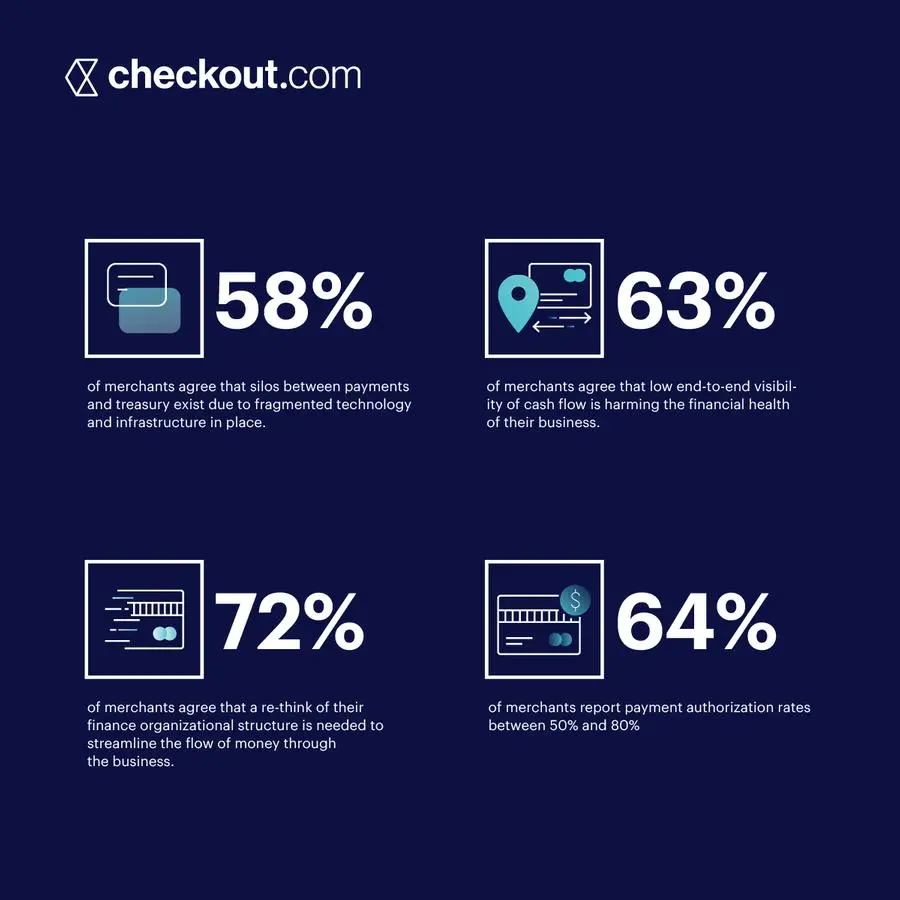In the MENA region’s rapidly evolving digital economy, a large opportunity still remains for merchants to improve their bottom line through digital payments, according to a report released by Checkout.com. The ‘Seizing the Digital Opportunity in MENA 2023’ report—part of Checkout.com’s annual MENA Report series—acknowledges how the region’s digital economy has moved from strength to strength in recent years, but suggests that merchants’ ability to fine-tune their payment performance is a decisive factor in retaining their competitive edge.
With that in mind, the report offers a guide to help merchants better capture the opportunities of digital transformation. This includes exploring how to take payments to the next level through AFTs, putting data at the heart of payments strategies, keeping fraud at bay, and partner models for expanding digital commerce platforms. The report includes notable contributions from executives at companies such as Visa, Al-Futtaim Group, Azadea Group, and others.

Remo Giovanni Abbondandolo, General Manager for MENA at Checkout.com, said: “Nearly four in five consumers in MENA are already engaging in various types of fintech activities, including money transfers such a Western Union, wealth management and investments such as Sarwa, Baraka and Get Stake. In the current pace at which the digital economy is growing, optimizing payment performance is not just a necessity, but a strategic asset that can unlock new revenue streams and eliminate inefficiencies. Refinement of payment tactics and leveraging data-centric approaches can provide the much-needed edge over the competition.”
“At Checkout.com, we are committed to supporting merchants in their journey towards revenue optimization and capturing the best opportunities that the digital economy in MENA presents. Following the granting of our direct acquiring license in the UAE from the Central Bank, we now have more control over processing outcomes and can drive best in class payment acceptance and performance for our merchants,” Abbondandolo added.
Putting data at the heart of your payment’s strategy
The rise of digital payments in the MENA region has resulted in the need for businesses to collect and analyze digital payment data. This data has the potential to drive revenue benefits for businesses, from optimizing the checkout process to evaluating internal processes and operations. Despite 49% of survey participants reporting access to payment data, a significant number of merchants in KSA and UAE are not able to turn it into actionable insights.
The report shows that 75% of merchants in the UAE and KSA measure payments optimization KPIs, including authorization rates, chargebacks, downtime, and fees, as part of their overall financial performance. By understanding their payments data, merchants can also unlock significant cost savings by identifying costs such as scheme fees, interchange, markup, or real-time FX fees.
Having access to, and regularly monitoring payment data, is critical to analyze the conversion funnel and to make the necessary adjustments to improve performance, observed Paul Carey, Executive Vice President of Cards & Payments, Al-Futtaim Group. “Payment data is central to our decision-making, particularly when it comes to payment solutions, payment methods and inventory selection. The depth of insights is really valuable – you can learn where your customers are based and what payment methods they prefer. And we can track these trends across our portfolio of brands to ensure optimal performance on all fronts. For example, some studies suggest that checkout abandonment rates for MENA may be as high as 70%,” he added.
Keeping fraud at bay
Using payment data to monitor the health of a risk strategy and identify areas of weakness is necessary for optimized execution. According to Checkout.com’s findings, 65% of consumers in MENA may avoid shopping online if they have safety concerns and 75% of them will not reattempt to purchase an item from the same website, or at all, if their payment is falsely declined. Moreover, a quarter of consumers in MENA have had a payment declined online in the past year despite having enough funds in their accounts.
Visa, a global payment technology company, has emphasized the importance of implementing an end-to-end fraud strategy for businesses to protect their revenue and unlock previously lost revenue streams due to fraud. Dr. Saeeda Jaffar, Senior Vice President and Group Country Manager for GCC, Visa, said: “As the world recovers from the pandemic, the payments industry can expect fraudsters to return their focus to financial institutions and merchants, with cybersecurity attacks carried out in the new, increasingly digital age. With the right approach and fitting technologies, industry players can stop threat actors from damaging the ecosystem, maintain trust in digital payments and provide a top-notch end-to-end payment experience for consumers.”
Choosing a partner, not a provider
The payments industry is an essential part of the rapidly growing digital economy in the MENA region, with many businesses now offering embedded finance. Accordingly, merchants in the region should partner with an expert payments optimization company to fast-track their path to success. Data from Checkout.com’s report shows that 41% of merchants in UAE and KSA look for a payment provider with the most modern technology and expertise to support the most advanced payments setups.
Nezar Alhaidar, Director at Fintech Saudi, also highlighted how fintechs can empower merchants in Saudi Arabia through technology and new business models that help reduce costs, increase speed, and remove friction. He said: “Fintechs can help merchants get online, improve operations, and scale through partnering with a provider who has expertise in navigating through the complexities of online payments.”

